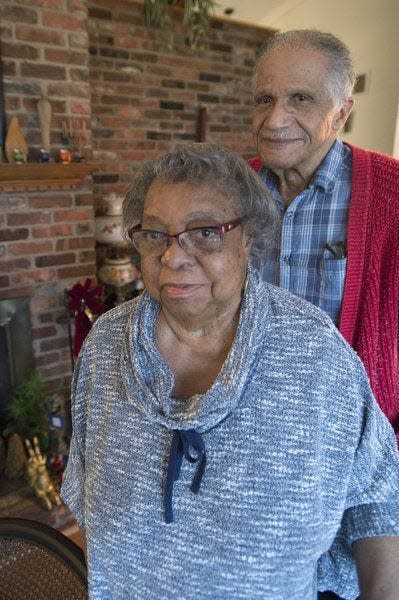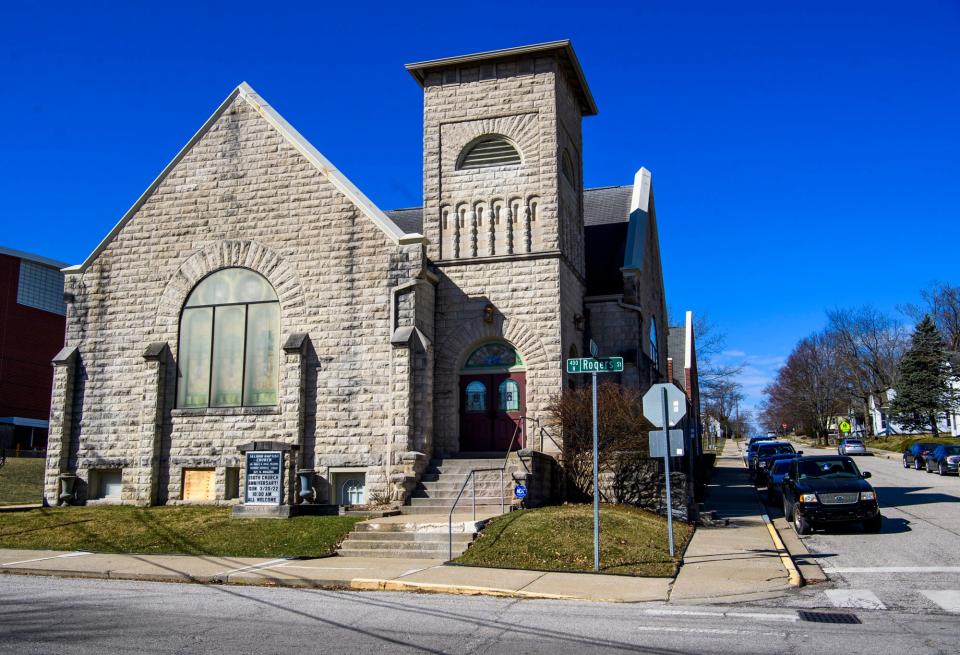Bloomington native Rev. Dr. Marvin Chandler left legacy as musician, peacemaker

Preacher, educator, jazz pianist, peacemaker, pilot, beloved father — you hardly know where to begin talking about the life, work, and loves of the Rev. Dr. Marvin Chandler, who died Sept. 23, a week or so short of his 94th birthday.
Born in Bloomington on Oct. 3, 1929, the fifth of nine children, Marvin Chandler and all the other Black kids in town went to school at Banneker Elementary, on West Seventh Street. It was 1934 and Bloomington was a segregated place.
But Chandler had already attracted some interest across the racial divide when, at age 4, playing a game they called “Church” with his sister Marcella, he sat down at the family piano and pounded out “Gimme That Old Time Religion,” chords and all, as the story is fondly told.
A piano prodigy, Chandler and his sisters Marcella and Marlene a few years later formed “The Chandler Trio,” performing, among other places, on Bloomington’s first TV station, WTTV, where they had a weekly show for 10 years, as Chandler recalled in an interview about five years ago with Elizabeth Mitchell of Resilience Productions, a Bloomington media producer.
“We sang pretty much gospel music and spiritual music,” he said. And, apparently, they were very good: in 1954, The Chandler Trio was invited to perform on the Arthur Godfrey Show.
That was a big deal. The Godfrey show, broadcast by CBS from New York, was one of the first hugely popular TV variety shows. Record companies offered contracts to The Chandler Trio.
“But I was a senior at IU,” Chandler recalled. “I wanted to finish my baccalaureate degree” — which he received in 1957, a B.S. in social service. He hung around Bloomington for several years, doing both music and social service. He became an assistant minister at Second Baptist Church.

Chandler played piano in a jazz group called “The Big Four,” and performed, among other places, at the old Van Orman Hotel in Bloomington. Chandler told this story:
“The manager wanted us to play for opening night, and I said, 'Great, but I’m not going to play unless my people can come in and eat' — because in those days Bloomington was still fairly segregated, as was Indiana.
“So, finally, the manager said he wouldn’t put a sign out there in front of the hotel saying ‘Welcome Negroes,’ but if they came they’d be served.”
From the archive: Westside woman housed black IU students during segregation
Chandler made sure that plenty of his people came down for opening night at the Van Orman — and “The Big Four” played there for six-and-a-half years.
Chandler was enjoying himself but soon had questions.
“How do I measure myself? Who am I? I was playing jazz music, and some people were telling me I would go to hell in a basket. I had a lot of questions about God.”
Then a minister friend who had counseled Chandler off and on offered some advice. And in 1959, Chandler and family — his wife, Portia, and three daughters — moved east. He enrolled at the Colgate Rochester Divinity School, and they lived in Buffalo, about an hour’s drive away, but an easier place for a Black family to find housing.
Chandler remained in Rochester after graduating with a master of divinity degree in 1963, working for the Rochester Area Council of Churches as Christian education director. But soon, suddenly, he was also helping the Black community of Rochester deal with the race riots that exploded there in 1964.
Gaining a reputation as a peacemaker, he was invited to the Attica Correctional Facility in nearby Attica, New York, when the state prison there erupted in a riot that left 43 people dead — still the worst prison toll in U.S. history.
Chandler’s job was to gain the confidence of the inmates by joining them in the cell blocks and serving as a pastor and negotiator. With his help, the Attica riot ended.
After Rochester, Chandler moved the family to California and became executive director of the San Francisco Council of Churches. Later, he joined Howard Thurman, the African-American author-educator-theologian, as executive director of the Howard Thurman Educational Trust.
That was the end of Chandler’s working life — but the beginning of his return to piano jazz, including performances around the Indianapolis area. And flying.
A recent obituary for Chandler in The Herald-Times noted:
“One of Marvin’s great passions was flying small planes. He obtained a pilot’s license at age 16, and he flew for many years … once held the distinction of being the oldest African American pilot in the country.”
The plane, according to his daughter Suzanne Chandler Faulk, was a Cessna that he kept for some time at Monroe County Airport.
And though Chandler held many titles and honors during his long life, “his greatest honor was serving as the patriarch of his family,” the H-T obit reported. “Nothing pleased him more than to gather around the piano to play and sing with family and friends.”
A funeral for Marvin Chandler was held Oct. 11 at Bloomington Second Baptist Church, and burial was in White Oak Cemetery.
In an interview, his daughter Suzanne said her dad had dealt with Alzheimer’s toward the end of his life, in his home on Manning Road in Indianapolis, where he had lived for some years — close to the jazz scene that he loved in Indy.
Her dad was “a humanitarian from the heart,” she said.
P.S. Thanks for help with this story to Elizabeth Mitchell, a director of Resilience Productions, the Bloomington organization that tells “the many untold stories of African Americans in Indiana.”
This article originally appeared on The Herald-Times: Peacemaker, musician part of Rev. Dr. Marvin Chandler's legacy

